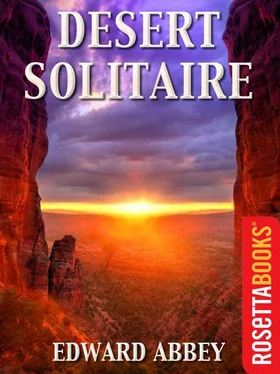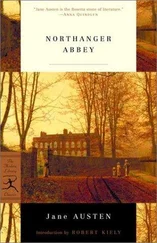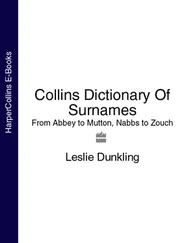Abbey, Edward - Desert Solitaire (Edward Abbey Series )
Здесь есть возможность читать онлайн «Abbey, Edward - Desert Solitaire (Edward Abbey Series )» — ознакомительный отрывок электронной книги совершенно бесплатно, а после прочтения отрывка купить полную версию. В некоторых случаях можно слушать аудио, скачать через торрент в формате fb2 и присутствует краткое содержание. Год выпуска: 2011, Издательство: RosettaBooks, Жанр: Старинная литература, на английском языке. Описание произведения, (предисловие) а так же отзывы посетителей доступны на портале библиотеки ЛибКат.
- Название:Desert Solitaire (Edward Abbey Series )
- Автор:
- Издательство:RosettaBooks
- Жанр:
- Год:2011
- ISBN:нет данных
- Рейтинг книги:4 / 5. Голосов: 1
-
Избранное:Добавить в избранное
- Отзывы:
-
Ваша оценка:
- 80
- 1
- 2
- 3
- 4
- 5
Desert Solitaire (Edward Abbey Series ): краткое содержание, описание и аннотация
Предлагаем к чтению аннотацию, описание, краткое содержание или предисловие (зависит от того, что написал сам автор книги «Desert Solitaire (Edward Abbey Series )»). Если вы не нашли необходимую информацию о книге — напишите в комментариях, мы постараемся отыскать её.
Desert Solitaire (Edward Abbey Series ) — читать онлайн ознакомительный отрывок
Ниже представлен текст книги, разбитый по страницам. Система сохранения места последней прочитанной страницы, позволяет с удобством читать онлайн бесплатно книгу «Desert Solitaire (Edward Abbey Series )», без необходимости каждый раз заново искать на чём Вы остановились. Поставьте закладку, и сможете в любой момент перейти на страницу, на которой закончили чтение.
Интервал:
Закладка:
Upward. Under a ledge I find the barest hint of a seep, drops of moisture leaking from the rock and dampening the sand beneath. I am so thirsty by this time that I try digging a waterhole, but the deeper I go the drier the sand. I need water; I put some of the moist sand into my mouth, extracting what refreshment I can from it, and go on.
Up through the notch. I come out on the surface of a rolling plain of cross-bedded sandstone, the petrified dunes of the Navajo formation, and win the view I’d been hoping for. Far in the distance lie the blue ranges under hard-edged, snowy cumulus clouds: the Henry’s, Elk Ridge and the Bear’s Ears beyond White Canyon, 10,000-foot Navajo Mountain on the other side of the river. On the west, not so far, perhaps ten miles away, rises the Kaiparowits Plateau, also known as Fifty-Mile Mesa, another island in the sky, little-known and uninhabited, cut off on all sides but the north by its sheer, vertical walls.
I walk out onto a point from which I can look down at the river, nearly straight below. I can see the switchbacks of the trail, the fan of greenery at the outlet of the side canyon, but no sign of Newcomb or the boats, deep in the shade of the willows. From up here the sound of the river, until now a permanent part of my auditory background, is no longer perceptible, and the desert silence takes on a deeper dimension. The sound of nothingness? “In the desert,” wrote Balzac, somewhere, “there is all and there is nothing. God is there and man is not.”
God? Nothing moves but the heat waves, rising from the naked rock. It is somehow comforting to see, nearby, the yuccas growing from the sand and from joints in the stone. They are in full bloom today, clusters of waxy, creamy flowers on tall stalks, supported and nourished by the rosettes of daggerlike leaves that form the base of the plant. God? I think, quibbling with Balzac; in New-comb’s terms, who the hell is He ? There is nothing here, at the moment, but me and the desert. And that’s the truth. Why confuse the issue by dragging in a superfluous entity? Occam’s razor. Beyond atheism, nontheism. I am not an atheist but an earthiest. Be true to the earth.
Far off, the muted kettledrums of thunder, pianissimo … T. S. Eliot and The Wasteland . Certain passages in that professorial poem still appeal to me, for they remind me of Moab, Utah. In other words I like the poem for the wrong reasons—and dislike it for the right ones.
Here I am, relaxing into memories of ancient books—a surefire sign of spiritual fatigue. That screen of words, that veil of ideas, issuing from the brain like a sort of mental smog that keeps getting between a man and the world, obscuring vision. Maya. Time to go back down to the river and reality, back to Newcomb and the boats, the smell of frying catfish—there’s God for you! I descend.
Evening on the river, a night of moonlight and canyon winds, sleep and the awakening. In a blue dawn under the faintest of stars we break our fast, pack our gear and launch the boats again. Farther still into the visionary world of Glen Canyon, talking somewhat less than before—for what is there to say? I think we’ve about said it all—we communicate less in words and more in direct denotation, the glance, the pointing hand, the subtle nuances of pipe smoke, the tilt of a wilted hat brim. Configurations are beginning to fade, distinctions shading off into blended amalgams of man and man, men and water, water and rock.
“Who is Ralph Newcomb?” I say. “Who is he?”
“Aye,” he says, “and who is who? Which is which?”
“Quite,” I agree.
We are merging, molecules getting mixed. Talk about inter-subjectivity—we are both taking on the coloration of river and canyon, our skin as mahogany as the water on the shady side, our clothing coated with silt, our bare feet caked with mud and tough as lizard skin, our whiskers bleached as the sand—even our eyeballs, what little you can see of them between the lids, have taken on a coral-pink, the color of the dunes. And we smell, I suppose, like catfish.
We’ve forgotten to keep a close track of time, have no clock or calendar, and no longer know for certain exactly how many days and nights we’ve been on the river.
“Six, I think,” he says, my doppelganger.
“No, only five.”
“Five? Let’s see.… No. Yes. Maybe.”
“I believe.”
“Seven?”
“Four?”
The time passes very slowly but not slowly enough. The canyon world becomes each hour more beautiful, the closer we come to its end. We think we have forgotten but we cannot forget—the knowledge is lodged like strontium in the marrow of our bones—that Glen Canyon has been condemned. We refuse to think about it. We dare not think about it for if we did we’d be eating our hearts, chewing our entrails, consuming ourselves in the fury of helpless rage. Of helpless outrage.
We pass the mouth of a large river entering the Colorado from the east—the San Juan. Somewhere not far beyond this confluence, if I recall my Powell rightly, is the opening to what he named Music Temple. We keep watch but see a dozen lovely and mysterious grottoes, all equally beguiling, pass up some, let the current rush us by others, and finally end up by choosing the wrong one. We will not have another opportunity.
“When ‘Old Shady’ sings us a song at night,” wrote Powell in 1869, “we are pleased to find that this hollow in the rock is filled with sweet sounds. It was doubtless made for an academy of music by its storm-born architect; so we name it Music Temple.”
Less than a century later his discovery will be buried under the mud of the reservoir, rendered inaccessible by those who claim they are not only “developing” but also “opening up” the canyon country. What have we lost? Here is Powell’s description of the place:
“On entering we find a little grove of box-elder and cottonwood trees, and turning to the right, we find ourselves in a vast chamber carved out of rock. At the upper end there is a clear, deep pool of water, bordered with verdure. Standing by the side of this, we can see the grove at the entrance. The chamber is more than 200 feet high, 500 feet long, and 200 feet wide. Through the ceiling and on through the rock for a thousand feet above, there is a narrow, winding skylight; and this is all carved out by a little stream which runs only during the few showers that fall now and then in this arid country.”
Late that evening, after sundown, Ralph and I beach our boats and make camp on a sandy spit near the outlet of a deep, narrow, labyrinthine side canyon, its name, if it has a name, unknown to us. I explore part of its length in the twilight and find another charming stream with pools of remarkable beauty—crystal-clear water in basins of rock and sand, free of weeds or mud, harboring schools of minnows. Darkness sets in before I can go very far. I go back to the campfire.
After a splendid night—clouds like clipperships racing across the starry sky, moon floating along the brink of the crag above us, wind in the tamarisk—we make a quick breakfast and I return to the exploration of the hidden passage, taking the canteens with me to fill with fresh water.
I come to where I had turned back the night before, a deep pool that fills the canyon from wall to wall. Filling the canteens, I cache them nearby, undress and wade into the water. The pool is deep, over my head. I swim across it, following a turn in the narrow canyon, here no more than ten feet wide, and emerge beyond into a curving tunnel of rock with running water on its floor.
This natural tunnel is pure rock, completely devoid of sand, soil and any trace of vegetation. The walls that tower above are so close to one another, overhanging and interlocking, that I cannot see the sky. Through a golden glow of indirect, reflected sunlight I proceed until I come to a very large grotto or chamber, somewhat like the one described by Powell, where a plunge pool and waterfall check any further advance.
Читать дальшеИнтервал:
Закладка:
Похожие книги на «Desert Solitaire (Edward Abbey Series )»
Представляем Вашему вниманию похожие книги на «Desert Solitaire (Edward Abbey Series )» списком для выбора. Мы отобрали схожую по названию и смыслу литературу в надежде предоставить читателям больше вариантов отыскать новые, интересные, ещё непрочитанные произведения.
Обсуждение, отзывы о книге «Desert Solitaire (Edward Abbey Series )» и просто собственные мнения читателей. Оставьте ваши комментарии, напишите, что Вы думаете о произведении, его смысле или главных героях. Укажите что конкретно понравилось, а что нет, и почему Вы так считаете.












